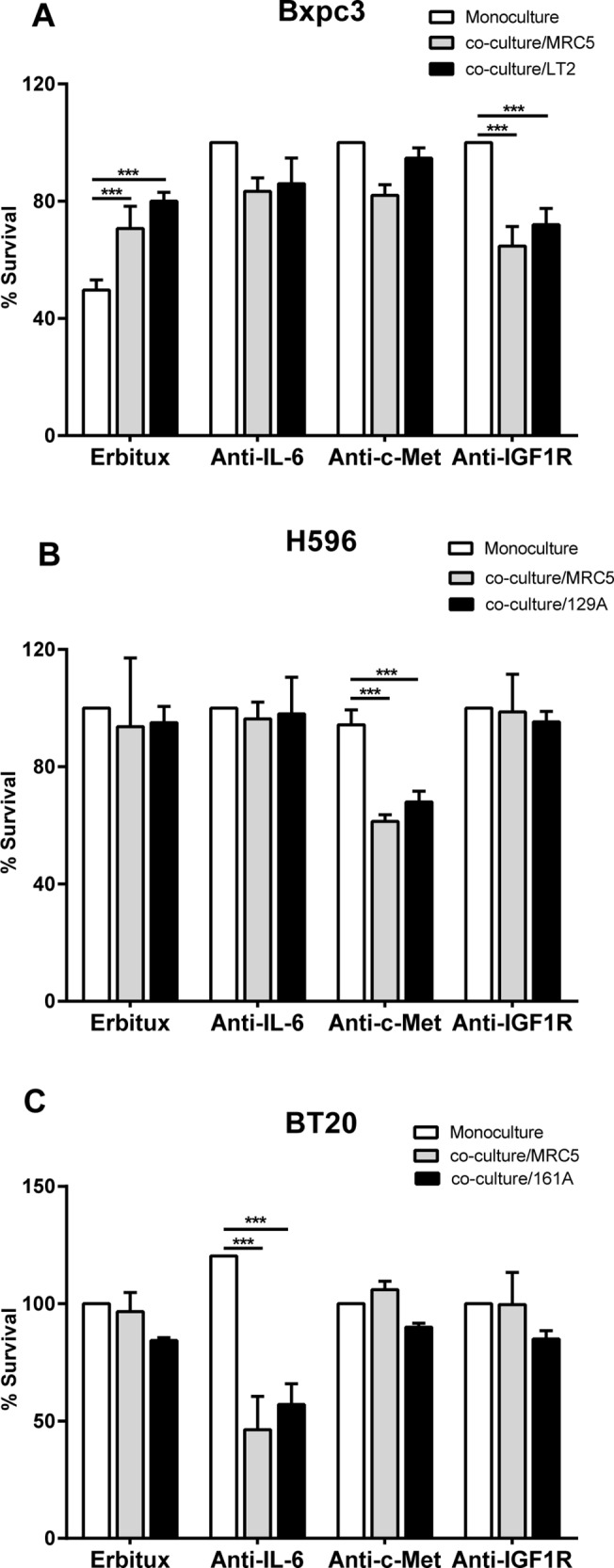Fig 6. Co-culturing the tumor cells with fibroblasts influences their response to therapeutic agents.

Cancer cells and fibroblasts (MRC5 or primary TAFs) were co-cultured as described in the cell viability assay for 5 days in the presence of inhibitory antibodies against EGFR, cMet, IL6 and or IGF1R. Cell viability was measured on day 5 using the CellTiterGlo as described for the cell viability assay. The percentage of surviving cells (% survival) was calculated relative to the respective IgG control. A) The mono-cultured BxPc3 cells treated with Erbitux exhibited a significant reduction in cell survival, whereas in the BxPc3 cells co-cultured with MRC5 or LT2 cells were not strongly affected by Erbitux (approximately 20%). Upon treatment with the IGF1R antibody, the survival of Bxpc3 cells was moderately reduced in the co-cultures compared to the monocultures. Treatment with the IL6 and or cMet antibodies induced a slight reduction in cell survival. B) Upon treatment with the anti-cMet antibody lung cancer cell line, H596, did not exhibit a significant reduction in cell survival in monoculture. In co-culture with MRC5 or 129A TAFs, treatment with the anti-cMet antibody induced a significant reduction of in cell survival. C) The breast cancer cell line, BT20 responded to treatment with the anti-IL6 antibody in co-culture exhibiting a significant reduction of cell survival. The mono-cultured BT20 cells treated with the anti- IL6 antibody exhibited no reduction in cell survival.
